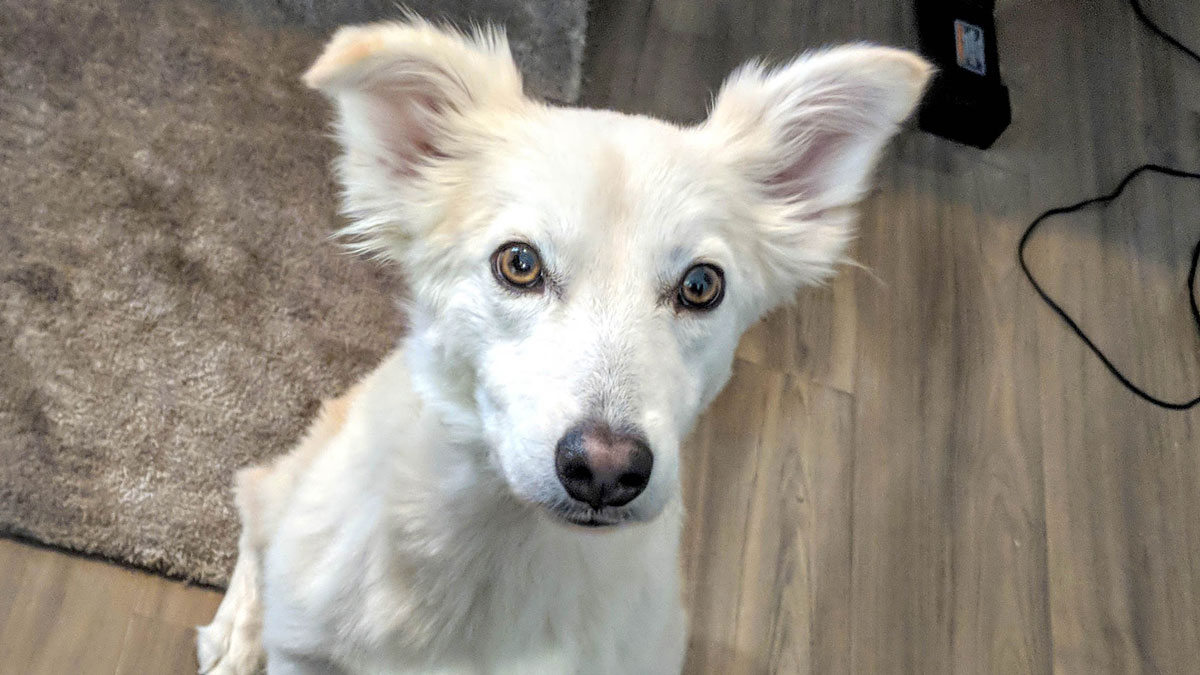Anxious Seeks Canine – Part 16: ‘Such good care’
Anxious Seeks Canine is a memoir blog series about a gay man living with Asperger’s, mental illness, and the relationships that may very well be fueling it. Names and identifying details have been changed to protect the privacy of all featured individuals. Except for the dog. Here’s part 1, 2, 3, 4, 5, 6, 7, 8, 9, 10, 11, 12, 13, 14, 15, 16, 17, and 18. Subscribe for more posts.
I
While my therapist Dr. Ihekweme didn’t immediately broach the subject of putting Cash up for adoption again, the idea lingered, and with it the promise of release.
Where once before I had fantasized about giving up my mother, I now caught myself contemplating letting go of my fur baby.
Maybe there was another dog out there, I told myself, a dog better suited to my temperament and lifestyle. Older, possibly more settled.
But truth be told, these thoughts were just an escape hatch from the canine ownership equivalent of postpartum depression.
The neurochemical alchemy that normally made for a happy relationship had somehow gone awry.
All that remained now was my grudging sense of responsibility to soothe Cash’s separation anxiety – a responsibility I seemed to fail the minute I left my dog’s cone of vision.
Seeking temporary distraction in new extracurricular pursuits, I undertook Spanish classes. Having picked up the invaluable phrase, “Mi perro es muy dramatico”, and little else, I dropped out, enrolling instead in improv classes.
Following a lifetime of avoiding sports, I shed my athletic performance anxiety and joined an LGBTQI-friendly dodgeball league.
Emboldened by these attempts at extroversion, I even began hosting regular weekend hikes and game parties.
Between work, Cash, and my ongoing commitments, it wasn’t long before I began to feel rather strung out. True to form, I was leaning into workaholism and achievement.
“Your stress levels have definitely spiked in the last few weeks,” Dr. Ihekweme noted during one session.
“I’m overcommitted,” I told him, “but I can’t stop myself. If I stop these activities, my self-worth…it’d just collapse.”
Knowing you’re behind the wheel is one thing. But recognizing you have the power to avert an oncoming vehicle was proving quite another.
“I encouraged you to start forming new habits,” Dr. Ihekweme said, “but maybe it’s time to – how do you say…” Dr. Ihekweme fumbled for the right idiom. “Maybe it’s time you ‘pumped the brakes’?”
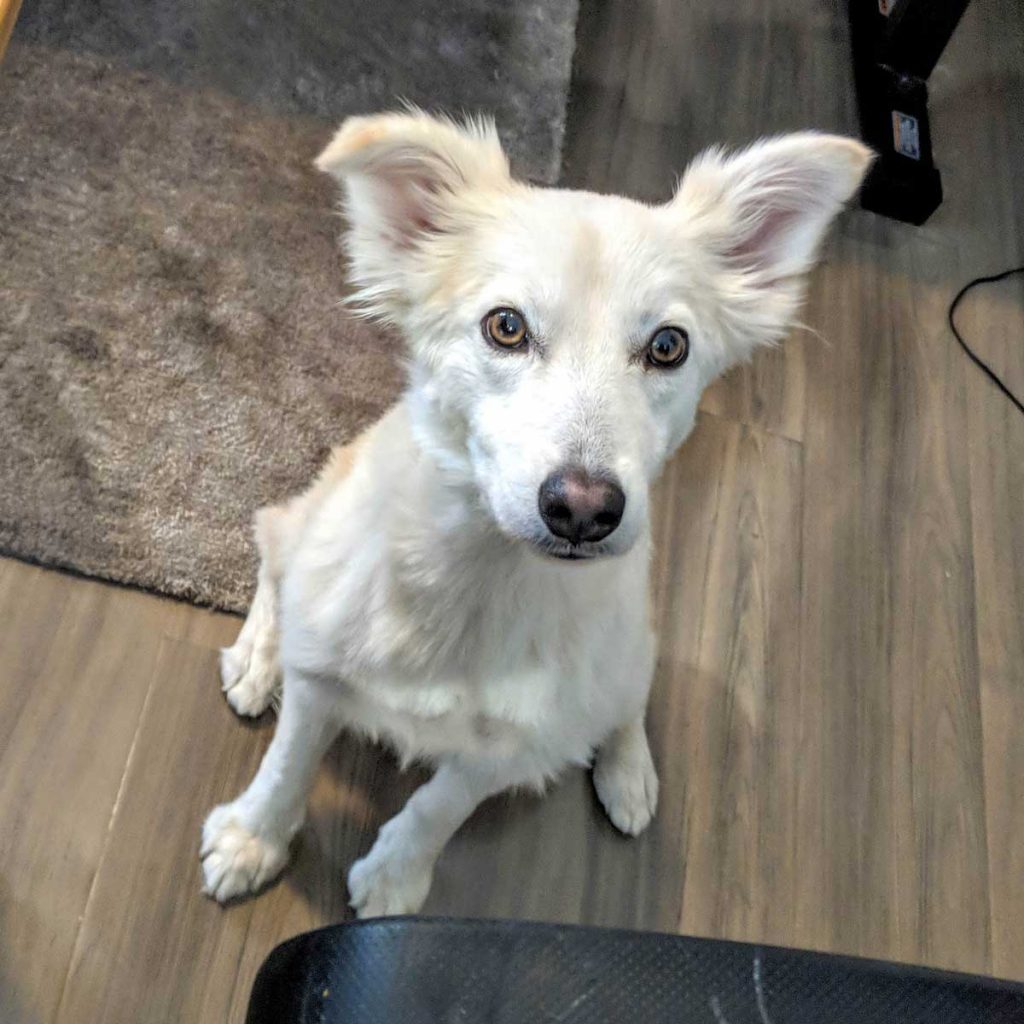
Part of me desperately wanted to follow my therapist’s suggestion, while the other insisted on plowing blindly forward.
There were after all things I wanted to do, a certain kind of person I wanted to be, and time was a-wastin’. Justifications, of course, for a pattern of behavior that had helped keep my covert depression at bay.
Yet the pain I had never truly owned as my own – had kept on indefinite layaway – remained, waiting to come home.
Sooner or later, something would have to give. And it was not, as it turned out, my packed schedule, but my knee.
II
If you know anything about me, you’ll know that I am not a particularly athletic person. Sure, I’ll go for a run around the block or take half a day off to hike, but that’s about as strenuous as my exercise regimen ever gets.
Nor am I a particularly outstanding team player. If given a choice between, say, board games with strangers, or locking away in my room with a good book, the book almost always wins out.
Loathe as I am to admit it, my autistic need for control and routines has earned me the unofficial qualification of “Captain Killjoy”.
After a lifetime of being singled out in Red Rover, I came to view dodgeball as a long-awaited chance to defy my “easy pickings” status.
A natural deficit in what the experts call proprioception – a sense of one’s body in space – has meant I can be rather uncoordinated. Yet on the courts, I ducked, pivoted, and leaped with the best of them.
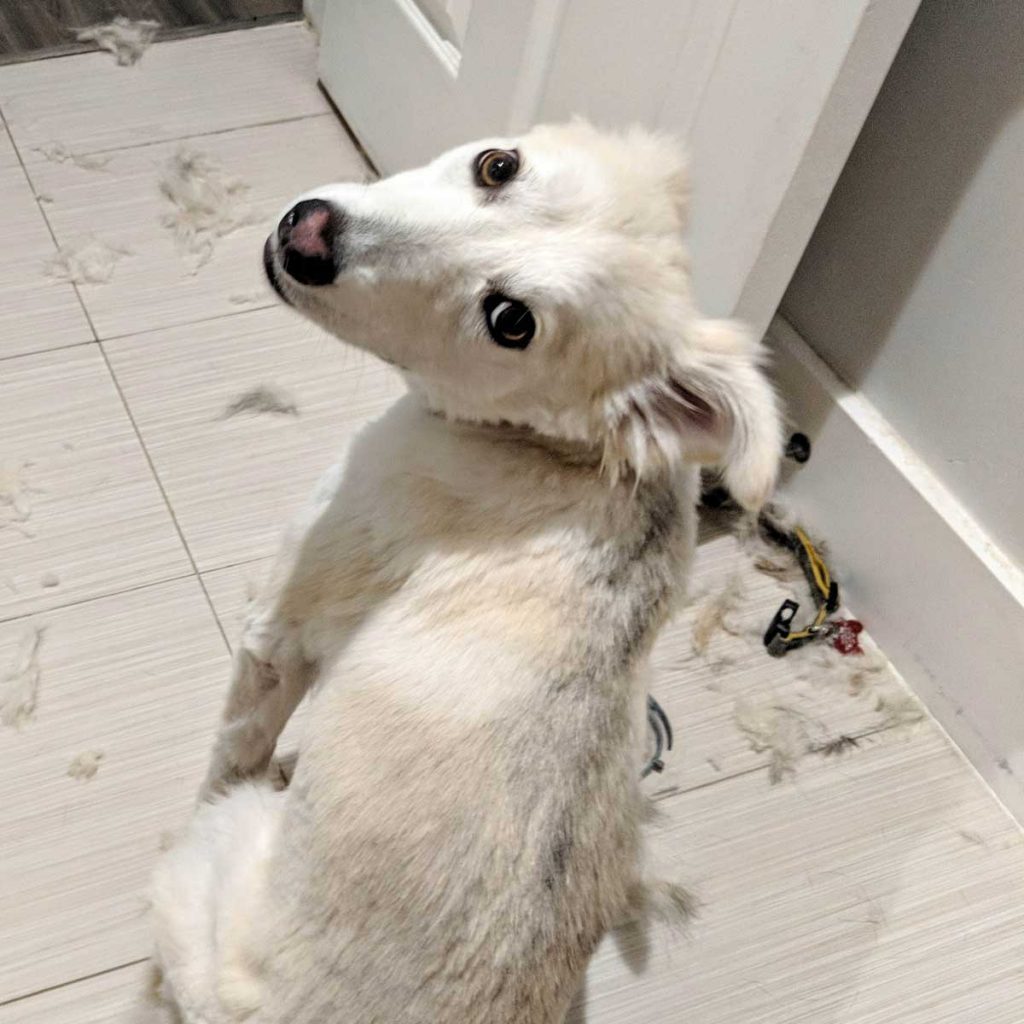
Try though I might though, my body didn’t maneuver itself in the ways it was supposed to. My core muscles failed to engage, leading me to twist and bend at odd angles.
More often than not, throwing a ball strained my shoulder and threatening to dislocate it. But emboldened by small successes, I kept at it.
During one particularly heated game, I raced over to recover a ball and saw a player in the opposing team preparing to snipe me from afar.
Halfway into a squat, I tried to throw myself away from the projected trajectory of the ball. That was when I felt something disconnect in my right knee.
The leg gave out, leaving me sprawled on the court, frantically signaling for a time out.
After friends helped me off the court, I limped in the wings of the adjacent stage, working the joint. The whole area had become big twinge of pain.
Just a temporary dislocation, I told myself. In a few weeks, I’d be more than good.
Another player in this situation might have headed home to rest and elevate the injury. Instead, I stuffed a knee sock with instant ice packs and hobbled straight back out to court.
But over the coming weeks, my knee joint wobbled with increasing frequency. This was no mere dislocation, but something far worse.
MRI scans revealed I had torn the ACL, a ligament, as well as the surrounding meniscus cartilage.
A knee specialist recommended I undergo surgery. The downsides were a huge medical bill and somewhat limited mobility for the next 12 months. The alternative was no more dodgeball, and a risk of early-onset arthritis.
Walking out of the specialist’s office, I felt my eyes well with hot, angry tears. I was going to be left temporarily handicapped.
A state my catastrophic thoughts treated as surely worse than death.
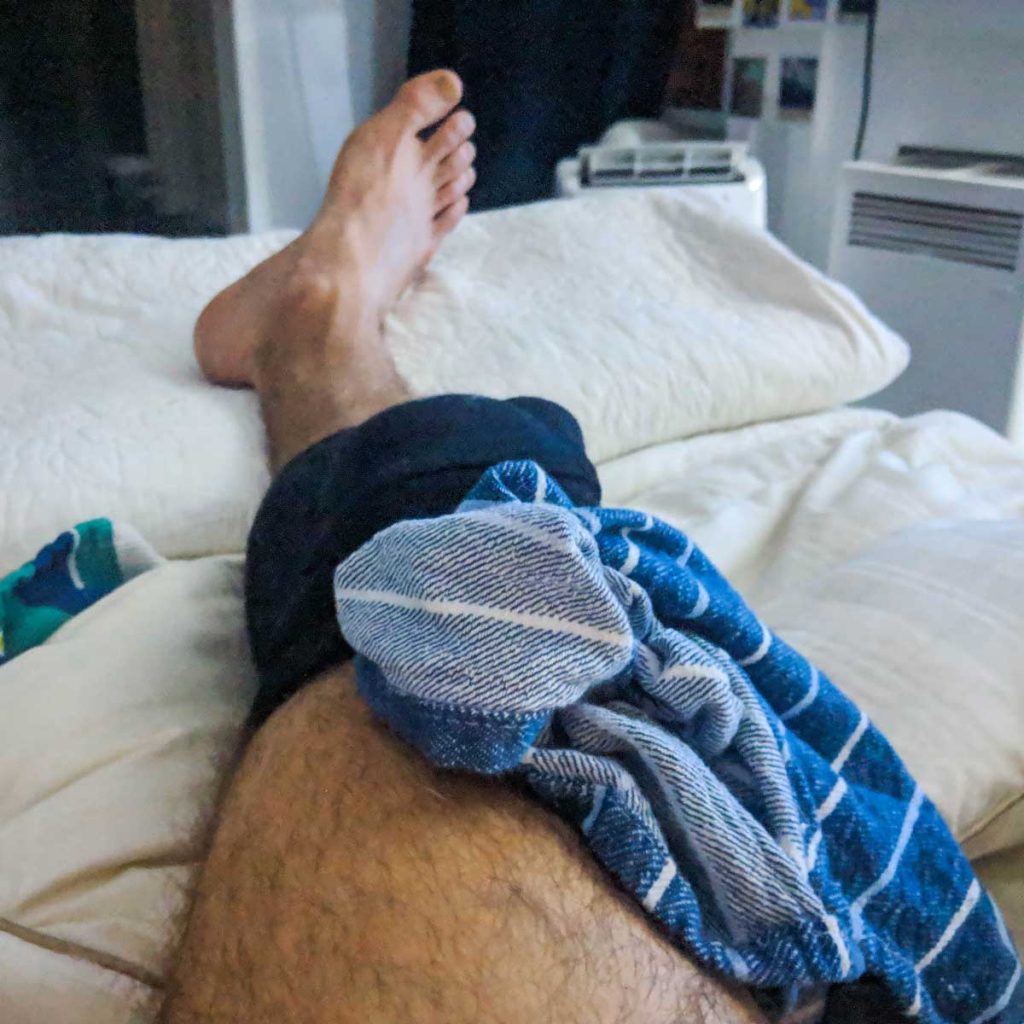
III
The terror of becoming disabled stemmed from a rather practical consideration: there was no one I could rely upon to help me.
This at least was what I told myself – a convenient cover for the fact I simply didn’t know how to ask for help.
Asking someone to take Cash out for his daily walks would, under normal conditions, have been inconvenient. But given his infamous anxiety and aggression issues, no one in their right mind would want to assume temporary custody of my dog.
My pet aside, being bedridden for days and homebound for weeks meant I’d have to finally slow down. Without the refuge of overachiever mania, I would be faced once more with the demons that had surfaced during my earlier illness.
When I explained my concerns to Dr. Ihekweme, he took a moment to respond.
“So you can’t ask anyone else to take care of Cash,” he began. “What are your other options?”
I stared. Was my therapist baiting me? He knew just as I did that my options were, at this point, singular.
But having myself suffered abandonment by others because of my disability and my struggles with anxiety, could I really inflict the same upon another?
“Putting Cash up for adoption…that would crush him,” I said. The sirens of shame were blaring in my ears.
“So what is the alternative?” Dr. Ihekweme reiterated.
Even supposing I found some temporary workaround post-surgery, lately I had had to give up on taking Cash outdoors. What he needed most right now was rehabilitation, something I had proven sorely incapable of providing.
“It seems this situation is a huge source of fear and concern for you,” Dr. Ihekweme added. I stopped short of replying.
“You don’t need to do anything right away,” he counseled. “But just think about it.”
And on the drive home, I did. To fob my pet off to someone else would, in my imagination, be taking “the easy way” out. But keeping Cash right now hardly seemed fair, either.
For months I’d felt like I was trapped in a deadlock: resentful of my responsibilities, but guilt-ridden about the idea of letting Cash go.
With my knee in its current condition, the time had finally come for decisive action.
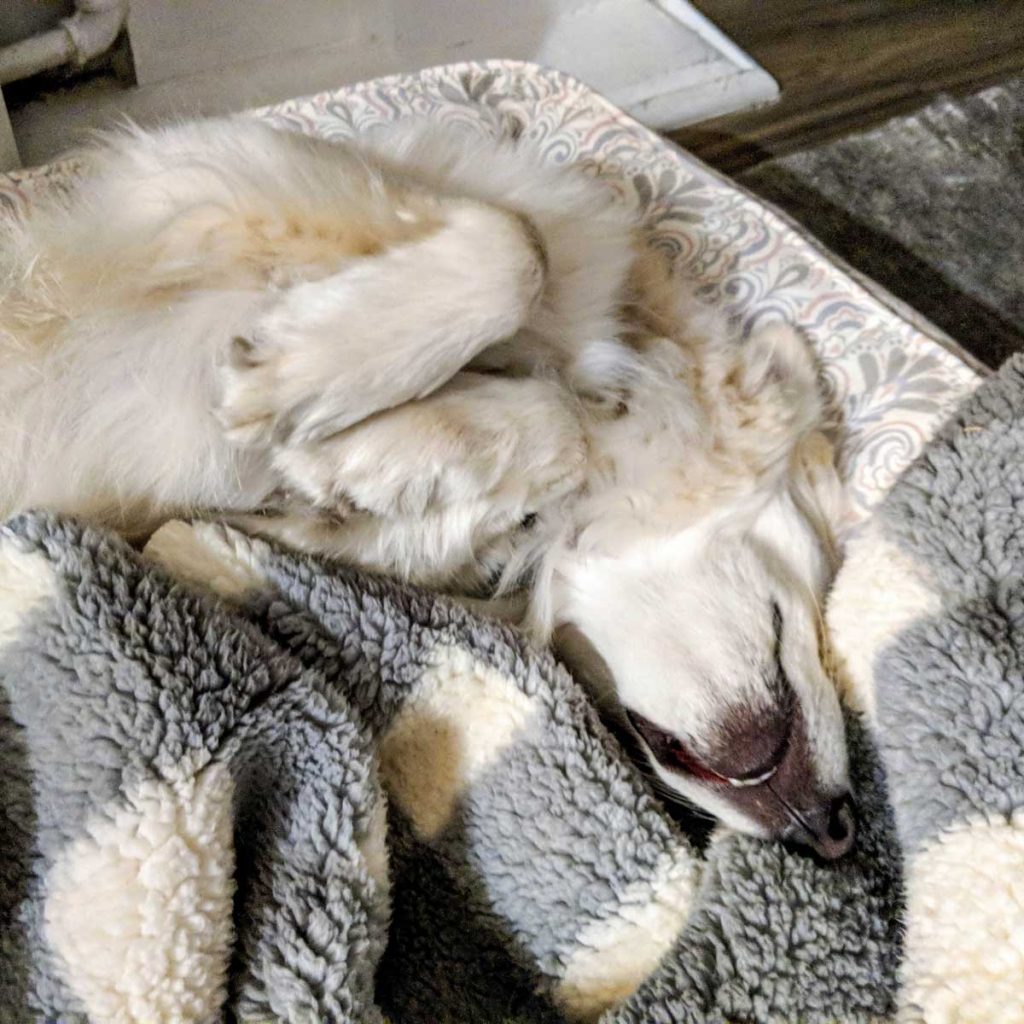
IV
In the initial days after Cash’s adoption, he would yank incessantly on the lead when we walked to the point of choking himself.
If I had expected my dog to walk placidly at my side, he would instead bolt in fits and spurts, jarring my arm.
Compromise had taken the form of an extendable lead. In principle, it should have given Cash free reign to wander where he chose. In practice, it had meant my dog regularly tangled himself on lamp posts and fire hydrants.
One time, he wound himself around a tree, and when I tried to untwine the lead, Cash continued to walk around it, undermining my efforts.
My dog’s attempt to keep me in sight only had the effect of leaving him even more tangled.
The situation might have been comedic, had I not been so exasperated. It was only later that I saw how perfectly it encapsulated our troubled dynamic.
Almost a year to the day of Cash’s adoption, I reached out to his most recent owner, Anja. We’d connected on Facebook, Anja occasionally commenting on photos of Cash, thanking me for taking “such good care” of him.
“Right,” the inner critic had sneered. “How little she knows.”
Like any responsible owner, I imagine she’d felt some measure of guilt about the decision. Guilt, but also relief.
When I mentioned to Anja that I was looking to rehome Cash, she revealed that her other dog had recently died. His absence, she said, had left a hole in her life.
A Cash-sized hole, I asked?
Anja indicated that as circumstances had changed, she would indeed be willing to take Cash back.
My heart stuttered. For the past two hours, I had been drafting and redrafting an adoption advertisement for Cash…and failing to make a convincing pitch.
“Insanely cute but high-maintenance,” my descriptions had more or less run. “Does not play well with other dogs. Refuses to be left alone for any period of time. Will not walk on a lead. Hazard ahead.”
Here, at last, as an out. Cash had previously lived with Anja, so there was an element of familiarity. A re-adoption seemed a far kinder fate than dumping my dog upon some unsuspecting stranger.
Anja’s offer hovered on my computer screen, unacknowledged, for an hour a two. Finally, I screwed up my courage and did the unthinkable. I said “yes”.
Anxious Seeks Canine continues with Part 17: ‘How do you stop?’.

Essy Knopf is a therapist who likes to explore what it means to be neurodivergent and queer. Subscribe to get all new posts sent directly to your inbox.
© 2025 Ehsan "Essy" Knopf. Any views or opinions represented in this blog are personal and belong solely to the blog owner and do not represent those of people, institutions or organizations that the owner may or may not be associated with in professional or personal capacity, unless explicitly stated. All content found on the EssyKnopf.com website and affiliated social media accounts were created for informational purposes only and should not be treated as a substitute for the advice of qualified medical or mental health professionals. Always follow the advice of your designated provider.


